Ai In The Legal Industry
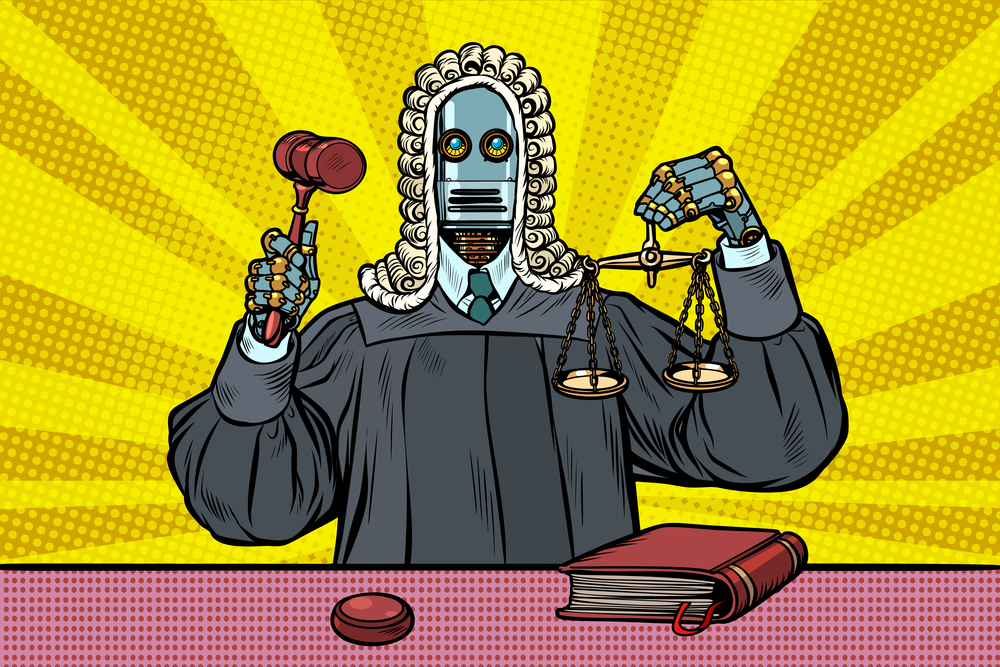
AI has profoundly impacted the legal industry, providing new tools and enabling lawyers to carry out processes more efficiently than ever before. From automated document reviews to predictive analytics and contract automation, AI is making waves in the legal sector.
This technology can help lawyers save time and money and provide invaluable insights into complex cases. However, with all this potential for transformation also come questions about its application in court; how will judges incorporate decisions that are informed by algorithms into their verdicts?
When it comes to justice issues, everybody wants a fair outcome - but does artificial intelligence have a place in the courtroom? Recent developments across different areas of the law suggest that the answer is yes.
For example, AI can help inform court decisions by analyzing large data sets faster than any human could. It can also help predict outcomes based on past experiences and detect patterns or bias which would otherwise be missed. In addition to these applications, AI systems can also be used to review evidence quickly and accurately detect discrepancies in legal documents.
The implications of AI-based decision-making are far-reaching – it is not only set to revolutionize the legal industry but could change our entire justice system.
While some might argue that there needs to be more research into this area before any major changes are made, there's no doubt that exploring other possibilities provided by artificial intelligence should be encouraged. With careful consideration given to its ethical implications, integrating AI into court proceedings could bring us closer to achieving fairer resolutions for all parties involved.
Judge Judy's famous catchphrase, "Don't pee on my leg and tell me it's raining," perfectly encapsulates her no-nonsense attitude towards upholding justice - but what would she say if presented with a case involving AI?
How will courts adjust their methods of delivering fair verdicts when faced with decisions informed by algorithms? The answers to these pressing questions remain largely unknown; however, they highlight the importance of understanding how exactly AI fits into our judicial system.
By exploring recent developments in this area we can get a better idea of where things may go in the near future.
What Is Legal Artificial Intelligence?

A recent survey showed that more than 70 percent of legal professionals in the United States now use some form of artificial intelligence (AI) technology. This statistic demonstrates AI's potential and impact on the legal industry.
But what exactly is legal AI?
Legal Artificial Intelligence, or “Lawful AI” as it is sometimes known, refers to a combination of methods that use computer algorithms and machine learning software to assist with tasks related to the law, such as contract analysis, document review, due diligence workflows, and case strategy development.
AI can also be used for automated document generation, natural language processing tools for research support services, predictive analytics tools for predicting outcomes, and suggesting strategies when dealing with disputes, amongst other applications.
In addition to these uses, lawyers have increasingly utilized AI to help predict court decisions based on past cases. By analyzing large volumes of data from previous trials and synthesizing them into actionable insights, this tool assists attorneys in making informed decisions about their clients' cases before ever entering a courtroom.
With its ability to offer insightful predictions at an unprecedented speed compared with manual processes, Legal AI provides practitioners with invaluable assistance in preparing for litigation.
The Potential Of Ai In The Legal Industry
The potential of AI in the legal industry is exciting, as it has the ability to revolutionize how lawyers practice law. To illustrate, a recent study by Deloitte found that AI can reduce contract review time from approximately 360 hours with traditional methods down to just 36 hours using automated tools. This demonstrates the efficiency of AI and its potential for significantly reducing costs and allowing more people access to quality legal services.
To better understand this powerful technology, consider Judge Judy’s courtroom: She quickly sorts through facts, finds discrepancies in arguments, and makes decisions based on her understanding of the law and relevant evidence presented before her.
By leveraging AI-powered technologies such as natural language processing (NLP), machine learning (ML), and predictive analytics, lawyers could similarly analyze large amounts of data, draw connections between seemingly unrelated pieces of information, and make informed decisions faster than ever before.
AI offers numerous advantages for the legal profession including:
- Automated document analysis & comparison – Faster detection of similarities & differences between documents;
- Improved due diligence processes – More efficient cross-referencing of case histories;
- Predictive analytics & forecasting – Optimized decision-making based on past outcomes.
In other words, AI can help provide an edge over competitors while enabling lawyers to focus their attention on areas where they are most needed - helping clients navigate complex proceedings or strategizing fundamental approaches to litigation success.
The possibilities are endless when considering Artificial Intelligence's impact on legal professionals and their practices. As such, those who embrace these new advancements may find themselves with a rewarding competitive advantage in today's rapidly changing world.
AI's Impact on Lawyers And The Law

The impact of artificial intelligence on lawyers and the legal industry is significant. It has been estimated that AI can reduce an attorney’s workload by at least 50%. This means that attorneys adopting AI-based solutions can focus more time on providing clients with better service and advice while freeing up their time for other activities.
In addition, AI can provide lawyers with access to a wide range of data that may not have previously been available to them. For example, AI-driven tools can help identify relevant case law or research topics quickly and accurately. By utilizing this technology, lawyers can make decisions based on more accurate information in much less time than they would have otherwise spent researching manually.
AI technologies also have the potential to improve accuracy when it comes to drafting contracts and documents. By automating repetitive tasks such as document review or contract preparation, lawyers can save time and money while ensuring that all essential details are considered before any action is taken.
Furthermore, these automated systems allow for greater consistency across multiple matters since fewer errors will be made during the process. As a result, attorneys can deliver quality services with greater confidence knowing that their work product is reliable and accurate. With these advantages in mind, it's clear why many firms are now investing in new AI technologies and incorporating them into their everyday practice.
It goes without saying then that AI has revolutionized how lawyers approach their work – from reducing workloads to improving accuracy, resulting in improved client satisfaction.
In the future, its use will continue growing as more organizations recognize the numerous benefits of using advanced technologies like artificial intelligence in the legal sector.
Advantages Of Artificial Intelligence Lawyers
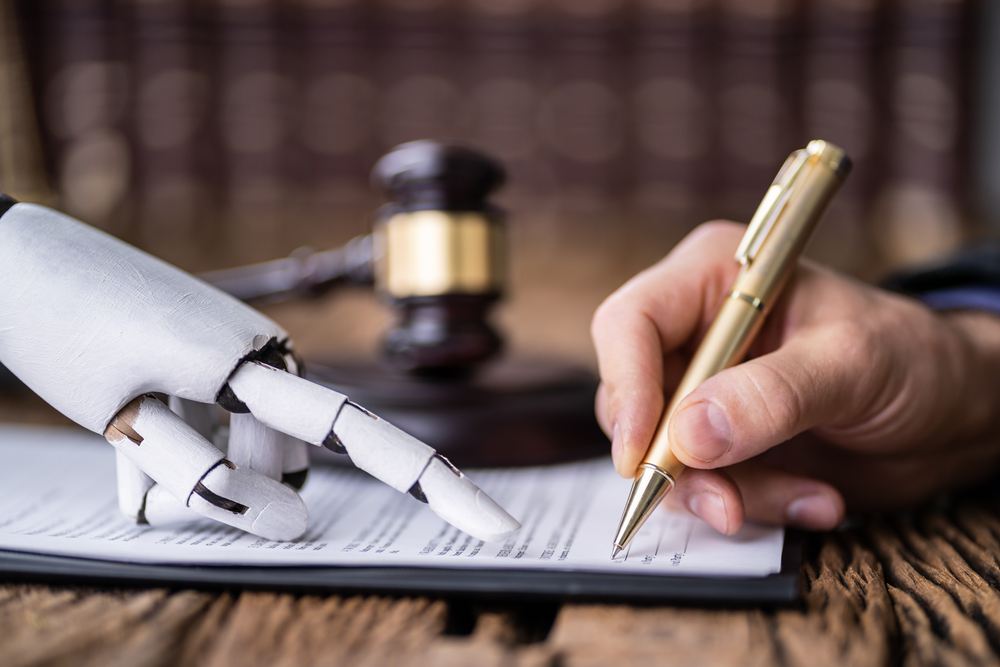
The advantages of artificial intelligence lawyers have been taking the legal industry by storm. AI is a powerful tool that revolutionizes how lawyers practice law and interact with clients. In just a few years, AI-powered technology has changed the face of the legal system in ways we could not imagine before!
AI technologies allow lawyers to be more efficient than ever before. With advanced computer algorithms, attorneys can search thousands of documents instantly and find relevant information quickly. This saves both lawyer and client valuable time, leading to faster case resolution times. Additionally, AI systems can flag potential conflicts of interest between parties, reducing the risk of litigation.
Furthermore, AI gives lawyers an edge in predicting court proceedings or settlements. By utilizing machine learning capabilities, attorneys can identify patterns from past case data that may help them understand how certain judges might rule on similar issues in future matters.
Here's why you should consider hiring an AI lawyer:
- They never miss subtle details or overlook important facts;
- They provide accurate predictions about trial outcomes;
- They conduct thorough research much faster than manual methods.
No matter what kind of legal problem you're facing--from business contracts to criminal defense--an AI attorney can give you an advantage over other litigants who don't use this cutting-edge technology.
So if you want your case handled effectively and efficiently without compromising quality, it's worth considering enlisting an Artificial Intelligence Lawyer as part of your team!
Turning now to challenges for lawyers in the age of AI...
Challenges For Lawyers In The Age Of Ai

The advent of Artificial Intelligence (AI) in the legal industry has posed some unique challenges for lawyers.
How will these professionals remain relevant as AI begins to automate more and more aspects of their job?
With technological advances, lawyers must stay up-to-date on new trends or risk being left behind by competitors.
Additionally, AI threatens the traditional roles of attorneys, such as providing legal advice and interpreting laws. AI could potentially replace many tasks that traditionally required human judgment or expertise.
Lawyers must also contend with changes in how they practice law due to AI's ability to identify patterns quickly and accurately. This can lead to better outcomes regarding predicting court decisions and identifying risks associated with certain cases.
Furthermore, this type of automation may bring higher costs since it requires greater expertise than manual labor would require. As a result, lawyers must adapt their skillset accordingly to keep pace with technological advancements while maintaining their competitive edge over other practitioners.
What strategies can lawyers employ to incorporate AI successfully into their practice?
To answer this question effectively, lawyers should focus on understanding how AI works and familiarizing themselves with the most advanced tools available today, including machine learning algorithms and natural language processing systems. By doing so, attorneys will have access to cutting-edge knowledge which can help them make informed decisions about their clients' cases without sacrificing accuracy or efficiency.
With the right approach, legal professionals can leverage AI technologies while embracing the opportunities they present rather than worrying about potential pitfalls.
Novel Legal Applications Of Ai
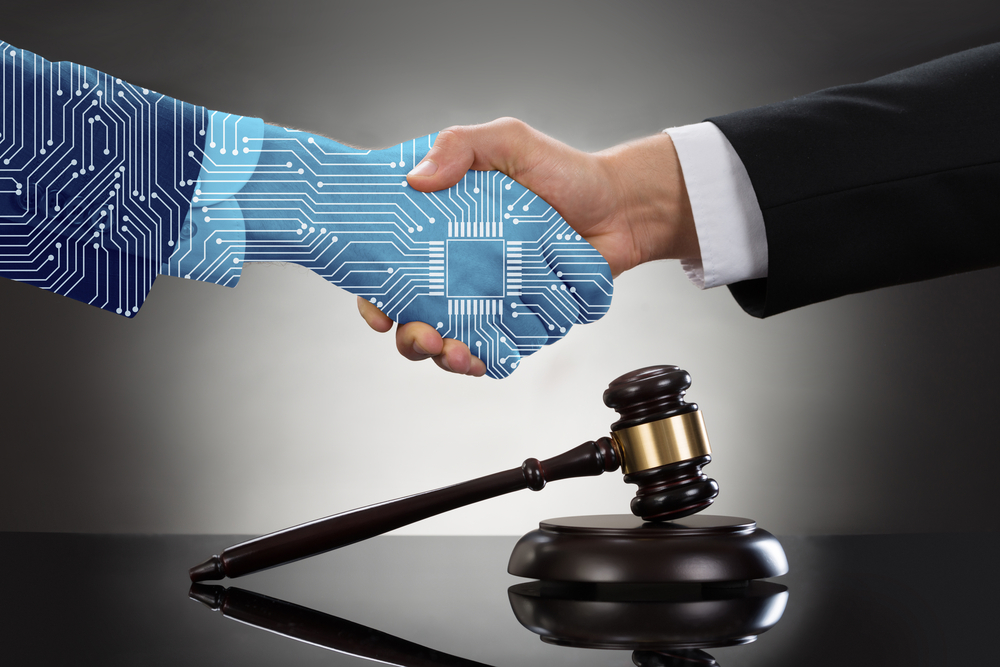
The legal industry is undergoing a revolution as Artificial Intelligence (AI) continues infiltrating the field. AI has become a ubiquitous part of everyday life, and it’s no surprise that its potential applications in the legal sector are beginning to be explored.
As this technology evolves, so do its novel legal uses: from automating processes like document review to providing more accurate predictions about how courts will rule certain cases. In short, AI promises to change how lawyers approach their work fundamentally.
In many ways, AI augments current practices rather than replacing them outright – allowing attorneys to work smarter and faster while still relying on their expertise in making decisions. It can also provide invaluable insights into patterns that may not have been noticed before due to manual research constraints or lack of data access.
For instance, using natural language processing algorithms, lawyers can now quickly analyze millions of documents at once instead of spending hours manually combing through each one for relevant information.
The possibilities for further streamlining processes and improving accuracy with AI are endless – all with the ultimate goal of helping clients get better outcomes from their cases.
From enhanced search capabilities to predictive analytics tools, there’s no doubt that AI presents an exciting opportunity for the legal world; however, it also brings up important ethical considerations which must be carefully considered before implementing any new technologies.
The Ethical Implications Of Ai In Law
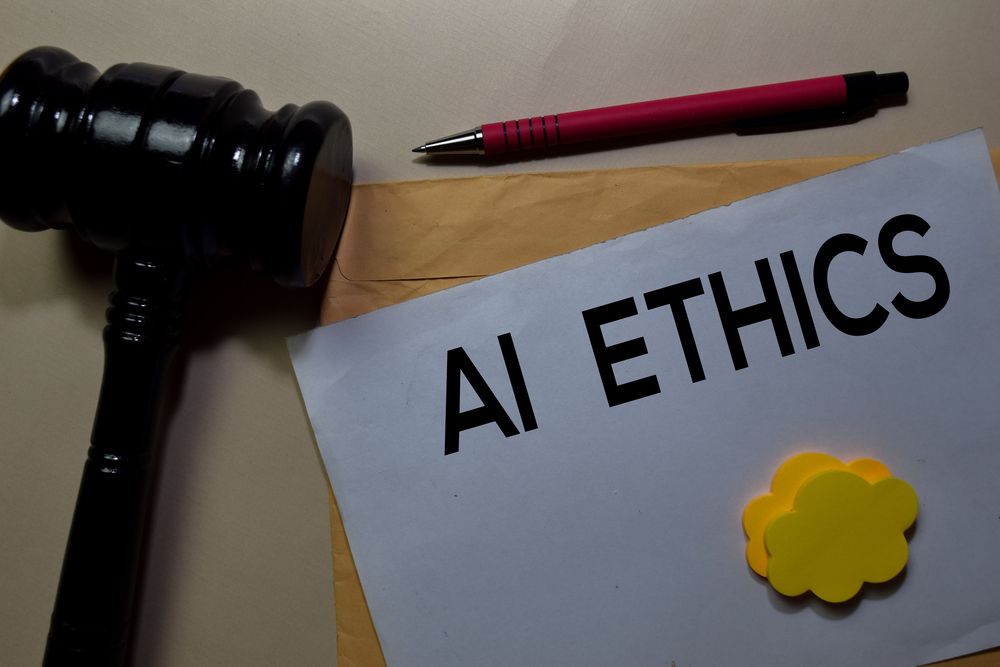
The ethical implications of AI in law are a pressing concern for lawyers and legal professionals alike. As technology becomes more intertwined with the practice of law, it is important to consider how far this trend should be allowed to go. Should machines make decisions that have profound impacts on human lives?
This article will explore the potential benefits and risks of using AI in the legal industry and what the future may hold for lawyers.
AI has tremendous potential when used properly within the context of legal services. It could help automate mundane tasks such as document review or case tracking, freeing up time for attorneys to focus on higher-level work. AI can also provide more accurate predictions about outcomes than humans alone, allowing lawyers to better serve their clients by providing them with data-driven insights into their cases.
However, some serious ethical considerations must be taken into account before implementing any AI system in a legal setting:
- Autonomy: Will an AI system remove a lawyer’s autonomy over their decision-making process?
- Accuracy: How reliable is an AI system at accurately predicting outcomes?
- Responsibility: Who is responsible if an automated decision results in harm or injustice?
- Bias: Is there a risk that an AI system may inadvertently incorporate existing biases in its programming or calculations?
- Privacy & Data Security: Are confidential client information and other sensitive data adequately protected against security threats when stored electronically?
These are just some questions that need to be addressed before incorporating artificial intelligence into the legal industry.
The answers to these questions will determine whether or not AI can play a positive role in improving access to justice while protecting vulnerable populations from discrimination or exploitation. Only then can we truly understand what direction artificial intelligence will take us in our pursuit of justice and fairness within the law.
What Does The Future Hold For Lawyers?
As the legal industry rapidly evolves, so too does its workforce. Lawyers are no exception to this trend, and it is essential to consider what the future holds for them in an era of artificial intelligence (AI) and automation. This article will explore how AI has impacted the role of lawyers by examining the ethical implications of using such technology as well as its potential for replacing human workers altogether.
Advances in AI have made it possible for algorithms to review case documents with greater accuracy than humans, assisting attorneys during discovery proceedings and reducing time spent on tedious tasks that can be automated. In addition, many law firms now use specialized software to perform basic due diligence processes more efficiently. However, these improvements come with a price: privacy concerns associated with data sharing, questions about accountability when machines make decisions instead of humans, and worries over whether or not sophisticated computer programs could eventually completely replace lawyers.
Introducing AI into the legal profession raises several ethical dilemmas that must be addressed before proceeding any further. For example, who would be responsible if a machine made mistakes?
How do we ensure that confidential information remains secure while being processed by automated systems?
And most importantly, how can we prevent robots from taking away jobs from people who rely on their salaries to support themselves?
These are all difficult questions that require careful deliberation and consideration before implementing new technologies can proceed safely.
The Pros And Cons Of Replacing Lawyers With Robots
In the last few years, technological advancements have opened up a discussion about how Artificial Intelligence (AI) can automate and streamline legal work. According to estimates, automating specific legal processes could reduce large companies' expenditures by more than $20 billion annually. This statistic is an exciting backdrop for examining the pros and cons of replacing lawyers with robots.
The potential advantages of AI are obvious: cost efficiency, improved accuracy, faster turnaround time, and greater scalability, allowing firms to take on larger workloads with fewer resources. In addition, automated processes allow lawyers to focus on higher-value tasks that require human judgment, such as researching case law or drafting contracts, instead of repetitively completing paperwork or reviewing documents line-by-line.
However, there is also concern over whether robots can replace humans entirely in providing quality legal services. Despite advances in natural language processing (NLP), AI cannot fully understand context and nuances regarding complicated legal issues; therefore, its recommendations might not always be accurate or reliable. Moreover, ethical considerations come into play when discussing the use of computers in making decisions – particularly those involving human rights and privacy laws.
It is clear then that while using artificial intelligence has numerous benefits for lawyers, it should only be used alongside (not instead of) knowledgeable professionals who can interpret information correctly and make informed decisions based on their own experience and expertise. As we look ahead at what this new landscape will bring, one thing remains certain – understanding how machines think must become second nature for anyone working in the field if they wish to remain competitive in the industry.
The Role Of Ai In Streamlining Legal Work
The role of AI in streamlining legal work has been a growing trend for some time now. To understand the impact it can have on the industry, one must first look at how it is being used and what benefits this technology provides.
Law firms largely employ AI to automate tasks that would otherwise take up precious hours of lawyers' time, such as document analysis or searching through large amounts of paperwork. It can also be utilized to provide more accurate results than manual searches and save money while doing so. Additionally, AI-based systems are increasingly being used to assist with contract review, legal research, and other mundane yet crucial activities within the legal realm.
In this way, AI offers an array of advantages to both attorneys and their clients:
• Leveraging data analytics capabilities to eliminate potential human errors;
• Reducing turnaround times significantly;
• Providing cost savings associated with labor-intensive processes; and
• Enhancing customer service experience by allowing online access anytime from anywhere.
The Potential Of Ai To Augment The Legal System
The potential of artificial intelligence (AI) to augment the legal system is an increasingly explored concept. With the rise in technology, many experts have begun considering how AI can help make access to justice more equitable and efficient. Alliteration aside, from predictive analytics used to forecast outcomes in court cases to automated document drafting capabilities, AI has a number of potential applications for streamlining processes within the legal industry.
Judge Judy herself would agree that advances in technology are helping lawyers create better strategies for their clients by projecting case scenarios before they even get into the courtroom. For example, some firms are already leveraging machine learning algorithms to quickly analyze large amounts of data associated with litigation and provide insights that could be beneficial during pre-trial negotiations or trial preparation.
Additionally, AI technologies such as natural language processing can save significant time regarding contract analysis and due diligence work—allowing attorneys to focus on higher-value tasks.
These examples show just a few ways AI can help improve accuracy and efficiency while also providing greater access to justice for those who might not otherwise be able to afford costly services like legal advice or representation.
This emerging trend will no doubt continue as technology progresses, creating opportunities for law firms everywhere – allowing them to gain insight into complex matters without sacrificing quality service or cutting corners on client care. The impact of this technological revolution remains yet unknown but its implications promise much innovation ahead, especially when it comes to litigation and dispute resolution.
The Benefits Of Ai-Powered Legal Research
Artificial intelligence (AI) in legal research is a powerful tool for the legal profession. AI-powered search capabilities provide researchers and practitioners with fast, accurate results that may have taken days or weeks to achieve manually. An example would be the case of Jones v Smith, where AI-enabled lawyers to quickly locate relevant cases from thousands of documents, saving them time and money.
AI-powered searches can also identify patterns humans might overlook, such as searching through large databases or analyzing contracts for similar languages. This capability has allowed lawyers to preemptively prepare for potential disputes before they arise, reducing litigation costs and improving their overall efficiency.
Moreover, AI tools can enable attorneys to access deep learning algorithms, which allow for faster analysis of complex data sets than manual review alone could provide. All these features help facilitate better decision-making processes within law firms while ensuring accuracy and compliance with laws and regulations.
By giving instant access to an unprecedented wealth of information, AI is transforming the way legal professionals conduct research and practice law. With its ability to rapidly sift through vast amounts of data more accurately than ever before, it stands poised to revolutionize how lawyers do their jobs today and into the future–making it essential that those in the legal field remain at the forefront of this technology if they wish to stay competitive in the changing landscape.
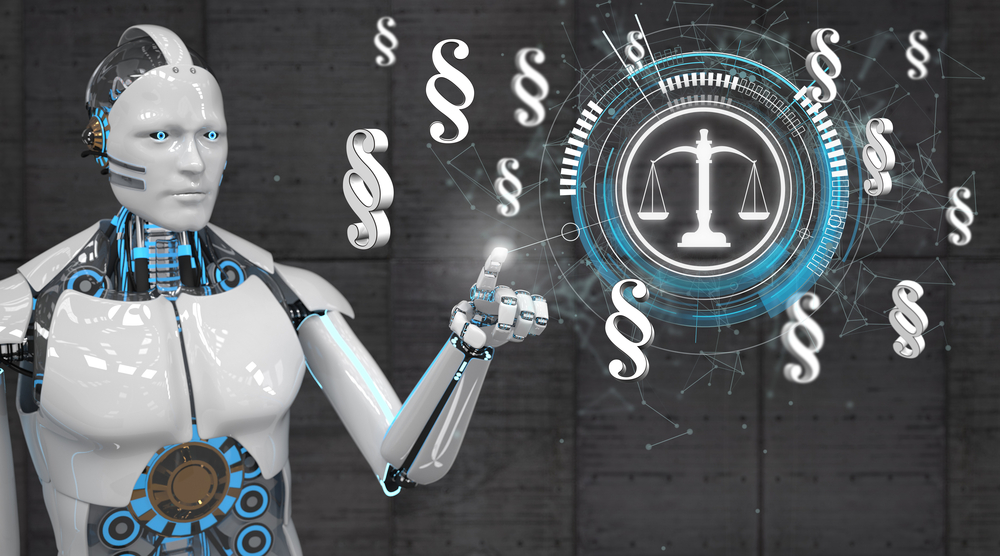
What Does Ai Mean For The Future Of The Legal Profession?
The legal profession is undergoing a massive transformation due to the advent of artificial intelligence (AI). According to research conducted by Deloitte, AI-related technologies are expected to increase productivity in the legal sector by up to 30%. This dramatic shift will have far-reaching implications for lawyers and their clients. As such, it is important to understand what this new technology means for the future of law.
One trend identified is an increased demand for specialized lawyers with experience using AI tools. Only 7% of law firms have adopted AI solutions into their practices, indicating there is still room for growth in this area. Additionally, AI technologies can allow attorneys to identify patterns and trends within large bodies of data quickly; potentially providing them with insights, they may not have had access to previously. These advancements could also lead to more efficient billing strategies and faster case resolutions.
These changes will also likely bring a heightened focus to the ethical implications of utilizing this technology. To ensure industry-wide success with AI, stakeholders must put safeguards in place to protect against any potential wrongdoings. Practically, this could involve establishing rules restricting the amount of personal data clients give a law firm.
Ultimately, attorneys must remain mindful of ethical considerations before adopting any new tools or techniques related to artificial intelligence.






